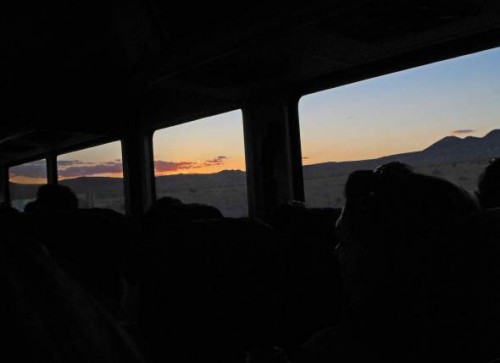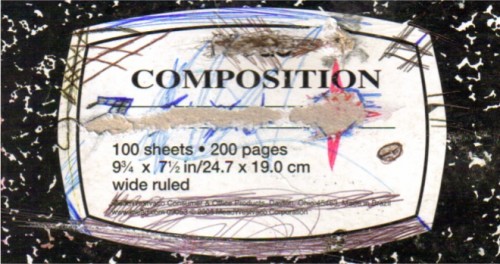(Last week, in Part III, Quentin Rowan was taken from Warlocks through the Velvet Underground, followed all the way by his own double, David Marks)
ON SOME BITTER night in the year two-thousand, nine years after meeting David Marks, I found myself walking down Bleecker Street again when I heard someone call my name. I looked up and there was Sarah, from high school, under the light of a street lamp.
Her face had developed, through the deepness of years and rooms and streets and faces that stood between us, into something both more beautiful and more severe. But in certain light, at certain angles, she could have been the same girl, from ninth grade, and some part of me bent towards this notion. Perhaps you could go back, if you were gentle. To reach in and touch the hollows of time you’d missed, like a young girls’ throat or the miracle of her hair flowing across your white pillows.
At twenty-four, or whatever I was, roughly a decade after David Marks’ prank, I slept with Sarah. I remember the warmth of her as the room grew dark and cold, the space-heater dying off, but still enough fluorescent residue from a sign beneath my window to make out a mole on her arm, some freckles on her leg. She had the most glorious body I’d ever seen, the most glorious swells of white skin over muscle and bone.
She told me she’d had a crush on me. Not at the time I’d called her, but later, senior year, when we ran track together. When she told me this, naked in bed, eye-to-eye, hand running along her thigh, I realized it was over. Being with her, which at another point and time in life might have been romantic, had finally broken the David Marks’ spell, the one he’d cast silently almost ten years earlier that frozen day at the Quaker retreat. The one that had entered me as silently, as ice.
For several weeks Sarah and I made love and pressed close, skin-to-skin, and it had meant nothing. Once I’d heard those words and seen that I’d won, that I’d beat the hurt and memories and cold tears of high school, I was no longer interested in this dark and shivering, perfect-smelling young woman next to me in bed. As human time machines, we were all used up.
After Sarah, years went by with no news of David Marks. I turned thirty and fell in love with a woman who looked a lot like Sarah. Brunette and cold with eyes paler than an alchemist’s depiction of the moon, she was good, somehow, at lighting up the shabbier corners inside of me. I can remember watching her brush back some hair from her forehead and lean up in bed beneath a window that still had no curtains. It was a new apartment in the very middle of Brooklyn where curses from the street would blow in and headlights on the occasional passing car would lap at her white walls, the blank sheets rounding her bed.
I was in love and was certain she had been sent to me, after the mindless and idle years of my twenties for a reason – perhaps to sweep away the long helices and debris of memory. Everything went well until I decided to quit smoking. I’d always told myself that I’d stop at thirty. When I mentioned my plan, she said she didn’t really mind the smell of smoke on my breath at all.
“Oh no?” I asked.
“No,” she said. “It reminds me of high school.”
“But you never smoked.”
“No. But it reminds me of someone I knew in high school.”
She was nearly invisible to me it was so dark, and we just lay there for a bit, yawning, my arms stretched across hers. For no particular reason, perhaps just not being tired yet, I asked, “So, who was it?”
She turned to me, softly. Now I could see the white of her skin as she put a hand to my forehead.
“Just a boy I dated once. He smoked.”
“What was his name?”
She chuckled at the memory and said, “David Marks.”
Assuming the common name would mean nothing, she was surprised when I shot up in bed, pelting her with questions. It felt to me like some projectile in the dark had landed, after years of wheeling uneventfully through history, at the point where future and past met. I had to wonder if my life hadn’t always been tied to this moment.
“Where did he go to school?”
“Oh. The um… United Nations School.”
“Did he smoke menthol cigarettes?”
“Yes… But how did you…”
And so, rising again from the dark sea of youth, he came, somber and skinny and naked to sit with us awhile in the bedroom, as I told her the whole story, all the wild little convergences in our lives upon the rigid axis of his Wheel of Time. It felt endless, and despite my resolution to quit, I lit a cigarette and smoked it at the open window, wondering how it was that my connection to this boy whom I could hardly picture now should run so deeply through the darkness.
When I was done, she was stunned. We were both laughing, mostly with shock, the recognition that we, too, were now tied to each other through David Marks, who it seemed was surging once more, with the sea around him, towards us.
She told me about her brief time with him. She’d gone to LaGuardia for high school, grown up on the Upper West Side. They’d met at some inter-school dance. She liked his deepness, his tormented nature, how tall he was, how long his hair. She liked the taste of menthol smoke on his breath at the end of a kiss, the Bob Dylan songs he’d play for her in his room, even his occasional hard-to-follow gripes about society and the system and the Wheel of Time. She’d understood him to be a smart boy, a cynic, with perhaps a strain of hating himself, but all teenagers had a bit of that.
The day she changed plans with him in a hurry, the truth came clear. They had walked out from the mud field of some Central Park Summer-Stage concert. Night was coming on, and they were at Fifth Avenue across from the park, near 84th Street with a group of her friends from school. At the last minute, she’d decided to go to a movie with them instead of going to his house to make out. She took his arm and told him.
They all stood on the street with tourists milling around, music still blasting from the park and evening sweeping in from every side, when David Marks started banging his head against the wall of the nearest building. There, with that perfect background, jamming his forehead, hard as it could go, against the limestone of some upscale residence until it blurred brown, with blood and adolescent love. Her friends watched and she sought his eye, his attention, anything, but he wouldn’t stop. The wall was marked hopelessly in red. Everything she said, her words, her pleas, fell pointlessly off his shoulders and his back, until eventually she and her friends just walked away.
She told me how they walked down Fifth Avenue into the glittering July night, the trees of the fine apartment buildings with wafts of light stretched out beyond the crimson doormen. For a few long blocks no one said anything. The sense that they were all holding their breaths was nearly palpable. She said she felt guilty about leaving him there and worried for his safety, but that once the girls turned onto a side street and slipped out of sight, they started laughing. The further they got, the more distant the memory of him, and the harder they laughed – from relief perhaps, from fear or confusion – until they filled the night with a giggling soprano choir, soaring and childlike and translucent.
By the time they’d reached Fifty-Ninth Street, she said, they’d pretty much forgotten completely. His maneuver had taken on the quality of an old and grainy postcard. They were fourteen, after all, she and her friends in their jean shorts and laundry-whites at the elastic cusp of womanhood, with the whole city spread out before them and all its lights, dizzying and brilliant as they gathered in together towards the huddled and bright-eyed future.
~
As she told me this, I remembered him saying to me, just before Bennington, “I got messed up on a girl… she dropped me pretty hard… right in front of all her friends.”
“We have to Google him,” she said.
I reached for her laptop. It came on it, lighting us both blue and blurring the room. But when she typed in his name, the crystalline sea brought back only news of the other David Marks, the famous one, who’d played guitar with the Moon for the dreamers of California out in their ocean orbits. Just when it seemed that our David Marks no longer existed, that he had erased all trace of himself and turned whatever words, whatever record of himself he had ever set down into absence. We found one hit. One bright and puzzling little glimpse through the billowing waves of pixels to convince us we hadn’t made him up: his ranking and time in a nude fun run along the Oregon coast.
I asked if she ever heard from him again, and she said “No,” but that one day, years later, after she’d left the city for the mint shadows of college in New England, her mother received a phone call from the Greyhound bus company.
A blue duffel bag had been left in the luggage compartment of one of their buses somewhere out in the oversize twilight of America. Inside it they’d found a five-subject college-ruled notebook, empty inside but for a phone number, her number from high school, written neatly on the first page. On the notebook’s cover, in timid, intricate penmanship were four words: Property of David Marks.





Pingback: 104 Weeks of The Weeklings: The Best of Our First Two Years | The Weeklings